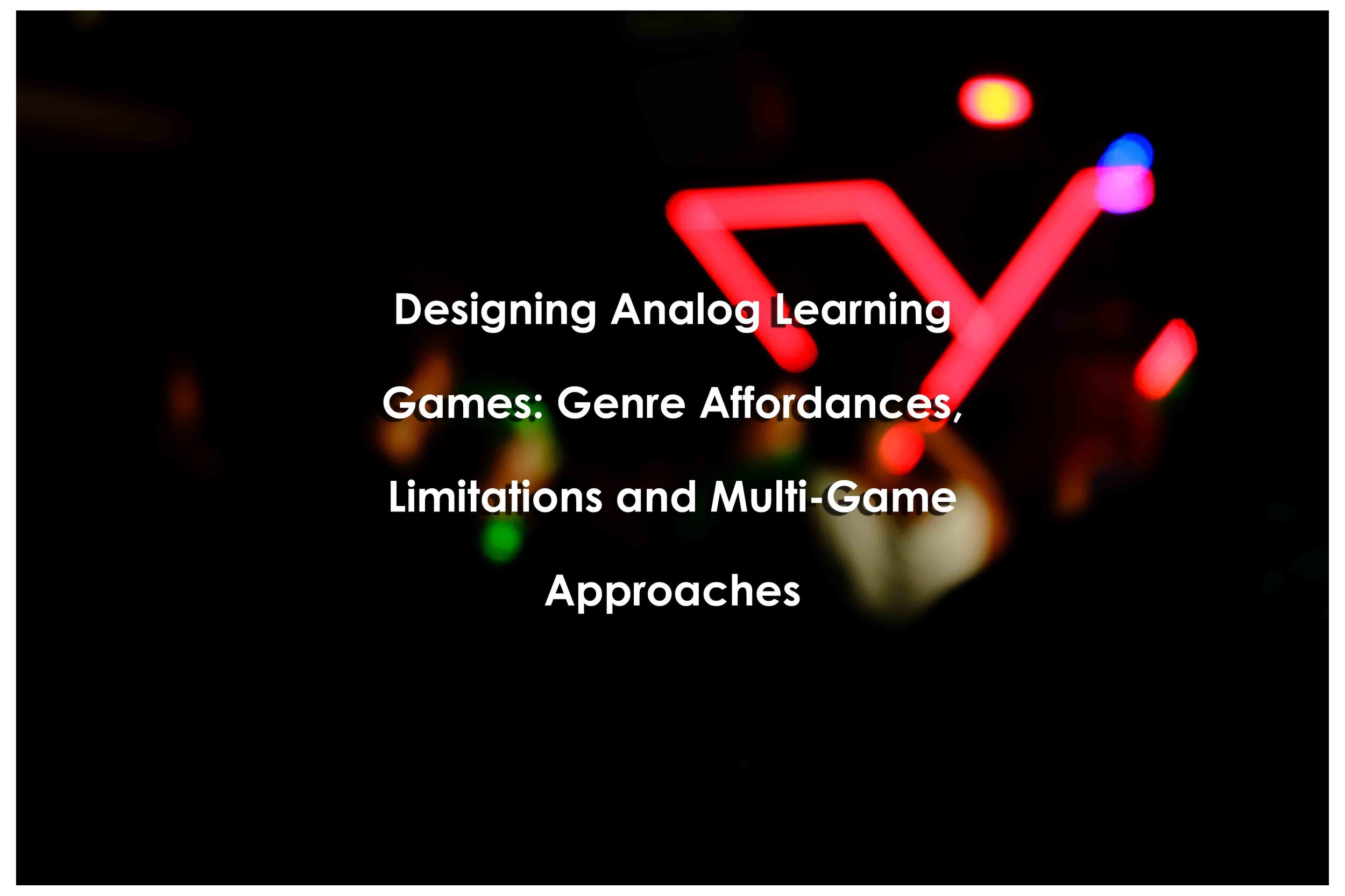Designing Analog Learning Games: Genre Affordances, Limitations and Multi-Game Approaches
Designing Analog Learning Games: Genre Affordances, Limitations and Multi-Game Approaches
Owen Gottlieb & Ian Schreiber
Abstract
This chapter explores what the authors discovered about analog games and game design during the many iterative processes that have led to the Lost & Found series, and how they found certain constraints and affordances (that which an artifact assists, promotes or allows) provided by the boardgame genre. Some findings were counter-intuitive. What choices would allow for the modeling of complex systems, such as legal and economic systems? What choices would allow for gameplay within the time of a class-period? What mechanics could promote discussions of tradeoff decisions? If players are expending too much cognition on arithmetic strategizing, could that strategizing alter the characteristics of those trade-off discussions? Could the designer devise a game system that promoted consideration not just of the difficult decisions made in a community that has to balance the needs of the community with individualized needs, but could they help find a way for students to discuss legal reasoning as well? The design examples in this chapter provide a case study in the exploration of these questions as well as the resulting published games. The authors suggest that for complex topics in social sciences and humanities that multi-game mechanic and multi-game approaches may provide the most fruitful avenues for games for learning designs.
Reference
Gottlieb, O., & Schreiber, I. (2020). Designing Analog Learning Games: Genre Affordances, Limitations and Multi-Game Approaches. https://scholarworks.rit.edu/article/1900/
Keywords
Game design, games and learning, religion, law, medieval history, education, design cases, game mechanics

